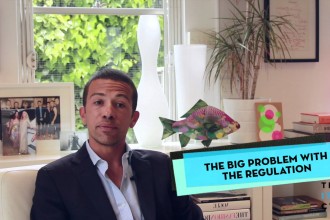The Mayor of Venice, Luigi Brugnaro, has banned one of her children book as âdangerousâ. Manuela Salvi, writer of more than 25 books, is surprised but does not really care. Her âNei panni di Zaffâ (In Zaffs Shoes) tells the story of a little boy who desperately wants to become a princess, but everybody keeps saying he cannot, because heâs a boy and princesses are girls. The Mayor of Venice, worried about the sexual orientation of his little citizens, has banned the book from all the schools, together with other 49 books which deal with gender, differences and traditional male-female roles.
âThe book was revised by a children neuropsychiatrist in Florence, who approved it for an audience of a very young age, but Mr Brugnaro has a different opinion, apparentlyâ Manuela explains. âI read it in many schools during my tours and children found it very amusing. Itâs about acceptance of diversity and kids understand it. Homosexuality has nothing to do with it and a book cannot have a role in the development of oneâs own sexual orientationâ.
The Rohampton University, on the contrary, appreciates so much the work of Manuela (despite the fact that she writes in Italian) that has given her a bursary for a Ph.D. which will start next week and will last three years, during which she will research on censorship and will produce a book.
Manuela chose children literature because itâs a job with an importance for our society. âItâs not like writing for adultsâ, she explains. âWhat you write has a deep impact in the developing of children personality. Moreover kids donât like to much fuss, they go straight to the point and a writer must concentrate on the content. I think this is more interesting than writing for an adult audienceâ.
She is not new to controversy. Her book âNemmeno un bacio prima di andare a lettoâ (A Girl of No Importance), published in 2012, was about the issue of baby-prostitutes, but was covertly banned, hidden from bookshelves and therefore forgotten. âIn the UK there are contentious children authors, like Kevin Brooks, Anne Fine or David Almond, but they still receive attention or win prizesâ. Thatâs why she applied to the London University of Rohampton where she attended a master. She was suggested by her professor to apply for a doctorate and got it. âAfter my research on censorship I will have to write a book which must be controversial, not a commercial one, I will not have any pressure about selling it. What else a writer could ask about?â.
Â





